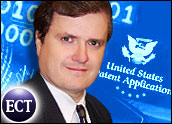
The Supreme Court on Monday continued its trend toward restricting patent rights with its ruling in the Quanta Computer v. LG Electronics case. In the unanimous opinion written by Justice Clarence Thomas, the Court addressed a seemingly simple principle called “patent exhaustion.” In other words, what restrictions can patent holders place on products that are sold?
In the computer industry, many components are assembled into finished machines. Intel sold its microprocessors and chipsets to companies such as Quanta. Those microprocessors and chipsets, however, were covered by some patents of LG, which licensed its parts to Intel with conditions.
Various agreements were in place between Intel and LG, including a prohibition — also covered by LG’s patents — on the assembly of Intel parts with non-Intel parts. By contract, Intel was required to give notice to its purchasers of this restriction.
Quanta purchased the Intel microprocessors and chipsets, covered by the LG patents and including the contractual prohibition, and assembled them with non-Intel components. LG then sued for patent infringement.
Too Many Bites?
The doctrine of patent exhaustion, also known as the “first sale doctrine,” is triggered when an initial authorized and unrestricted sale of a patented item occurs.
The Supreme Court reiterated that this type of sale terminates all patent rights to the item. In other words, the buyer can use the item without fear of a patent infringement lawsuit. It should be noted, however, that patentees can legitimately place restrictions on the sale or use of their products — e.g., via a field of use or other contractual limitation.
In its decision, the Court held that if the only reasonable and intended use of the sold item is to practice the invention, and if the sold item embodies essential features of the patented invention, then the patentee’s rights are exhausted by that sale.
In Quanta v. LG, the Court focused on the final step, in which the Intel and non-Intel component parts are assembled, and found that everything inventive about the LG patents is embodied in the Intel products sold, i.e., the microprocessors and chipsets. The mere assembly is something standard, common and noninventive to the Court.
Quanta’s argument about downstream unfairness won the day — i.e., the need to prevent patentees from getting multiple bites from a licensing apple.
Since the provision for giving notice to Intel’s customers was a separate contractual agreement, the Court did not implicate the conditional sale aspects of this complicated transaction to counter the application of patent exhaustion.
Indeed, LG’s approach to restrict sales by splitting royalties through tiered agreements and suing for patent infringement was not persuasive to the Court.
Exhaustion of Rights
Companies that want to control downstream sales of their products must focus primarily on contract terms instead of the threat of patent infringement lawsuits.
With the splitting-the-royalties approach apparently eschewed by the Court, patentees will focus on recouping the full value of their products from that first sale, passing on their costs to those customers, creating a cost ripple in the value chain.
This is likely to cause some angst for awhile, as companies adjust to this new paradigm and develop new post-sale contracting techniques to pass muster under the antitrust laws.
Although this is a longstanding doctrine in patent law, the subtleties of intermediate products in the transaction chain — particularly in the new economies — have created new complexities.
The Court last addressed patent exhaustion in 1942, in a case involving quite different facts, technology and scenarios. The Court’s unanimity and willingness to graft the new facts to the old law is tantamount to providing yet another way to get patentees to relinquish their patent rights.
Nonetheless, the effect of this opinion can be minimized through careful licensing and keeping an eye to the market realities.
Although this opinion is ultimately somewhat narrow, the full ramifications remain to be seen. What impact will this decision have on the biotechnology and seed industries with the sale of self-replicating products? Will sophisticated companies now be too hamstrung by this decision to effectuate layered arrangements to their mutual satisfaction?
More importantly, when will the Court stop curtailing patent rights and reaffirm the importance of patents to our society as a whole? With further challenges set to come up in the next term, we should wish for some rest from the assaults, lest our fundamental patent rights themselves become exhausted.
Raymond Van Dyke, a partner at Winston & Strawn, is a technology attorney in Washington, D.C. His views are his own and not those of his firm or his firm’s clients.









































Social Media
See all Social Media